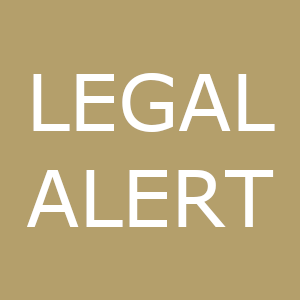Kentucky Anti-SLAPP Law: Proposed Law Seeks to Protect Free Speech
Proposed Kentucky Anti-SLAPP Law: A new law has been proposed in Kentucky, the Kentucky Public Participation Act, which seeks to provide protection against frivolous lawsuits filed for the purpose of limiting free speech.
Strategic Lawsuits Against Public Participation (“SLAPP”)
Freedom of expression is a right enshrined in both the Fist Amendment to the Constitution of the United States of America and in the Kentucky Constitution. Yet each year, countless Kentuckians find their rights to free expression challenged in court, in lawsuits that are known as Strategic Lawsuits Against Public Participation (“SLAPP” suits).
Proposed Law: Kentucky Public Participation Act
Kentucky is one of only 20 states without anti-SLAPP laws which allow defendants to dismiss SLAPP suits quickly. However, a pre-bill was recently filed seeking to enact anti-SLAPP laws in Kentucky. A link to the pre-bill can be found here. The proposed law, which could be considered for enactment during the Kentucky legislative session in January 2020, would permit defendants to file a motion asking that the SLAPP suit be dismissed within two months unless evidence is shown that the case is legitimate. If enacted, the statute may provide a powerful tool for defendants to dismiss frivolous lawsuits at an early stage and may allow for the recovery of attorney’s fees and costs if successful.
Examples of SLAPP Lawsuits
SLAPP suits have been brought in many different contexts, including against those who speak in public assemblies, post online reviews or on social media, write letters to the editor taking issue with a property development, or report police misconduct. Proponents of anti-SLAPP laws believe these SLAPP lawsuits have a chilling effect on free speech thereby enabling a party to be “sued into silence.” Anti-SLAPP issues often arise when businesses or individuals are sued for defamation, unfair business practices or false advertising.
Typical Anti-SLAPP Process
An anti-SLAPP case typically unfolds as follows:
- It often begins when you receive a demand letter; this letter will urge you to stop exercising your free speech rights, and threaten a lawsuit (SLAPP suit) if you do not comply.
- Next, it is common for a lawsuit to be filed against you if you did not comply with the threats in the letter, including a summons and complaint filed by the SLAPP filer and their attorney.
- The lawsuit will then be served on you. In most cases, it is served personally. The suit must be served on you before you have any obligation to respond.
- Once served, generally you have 20 days to file an initial response (Ky. R. Civ. P. 12.01), and a total of 60 days to file an anti-SLAPP motion (proposed law KRS 454). Failure to do so may result in a “default” ruling against you so it is imperative to have an anti-SLAPP attorney move quickly to analyze your case.
- Once an anti-SLAPP motion is filed, the court will then decide whether to strike the case or allow the case to continue.
- If the court does not dismiss your case on the basis of your anti-SLAPP motion, you can file an appeal and have the decision reconsidered by the Court of Appeals.
- If your anti-SLAPP motion succeeds, the proposed Kentucky law would entitle you to have all your attorney’s fees and costs paid by the plaintiff.
Kentucky Anti-SLAPP Attorneys
Commonwealth Counsel Group lawyers have successfully represented parties in anti-SLAPP motion proceedings in other states which have enacted anti-SLAPP laws. We are closely monitoring the proposed Kentucky anti-SLAPP law and stand ready to defend and uphold our clients’ constitutionally-enshrined free expression rights.

